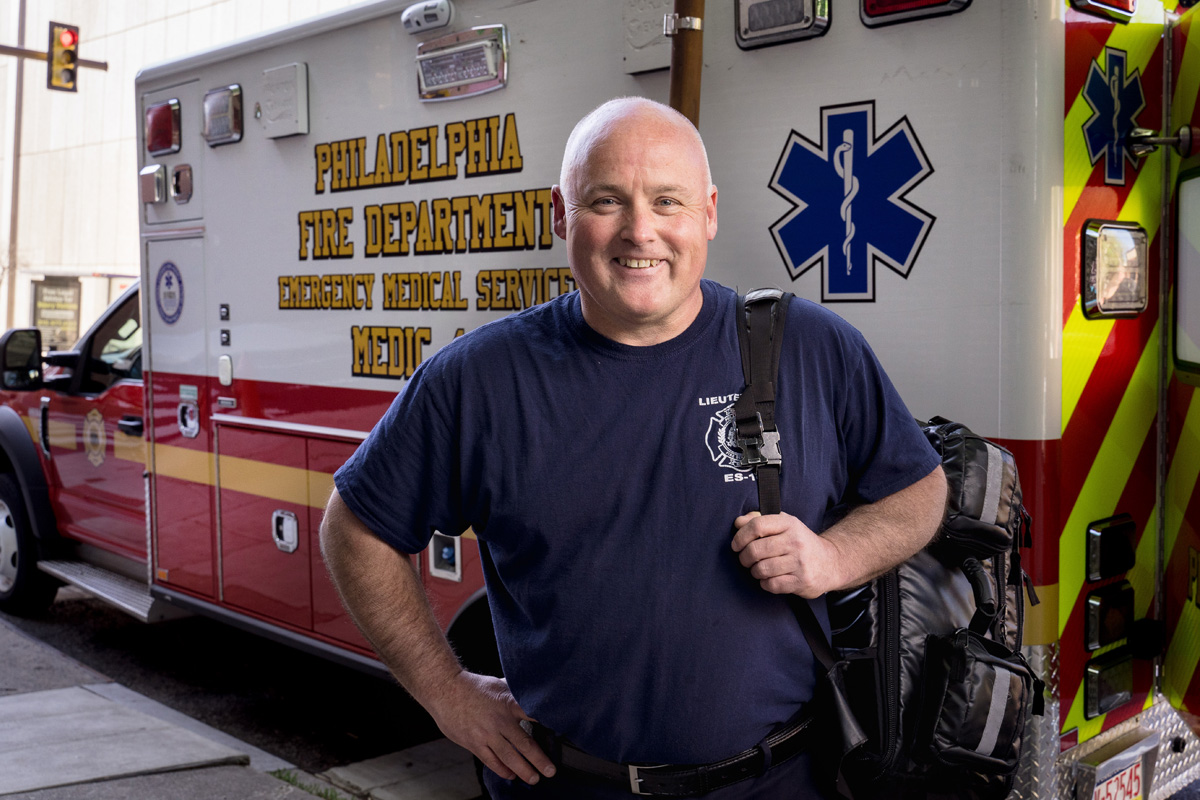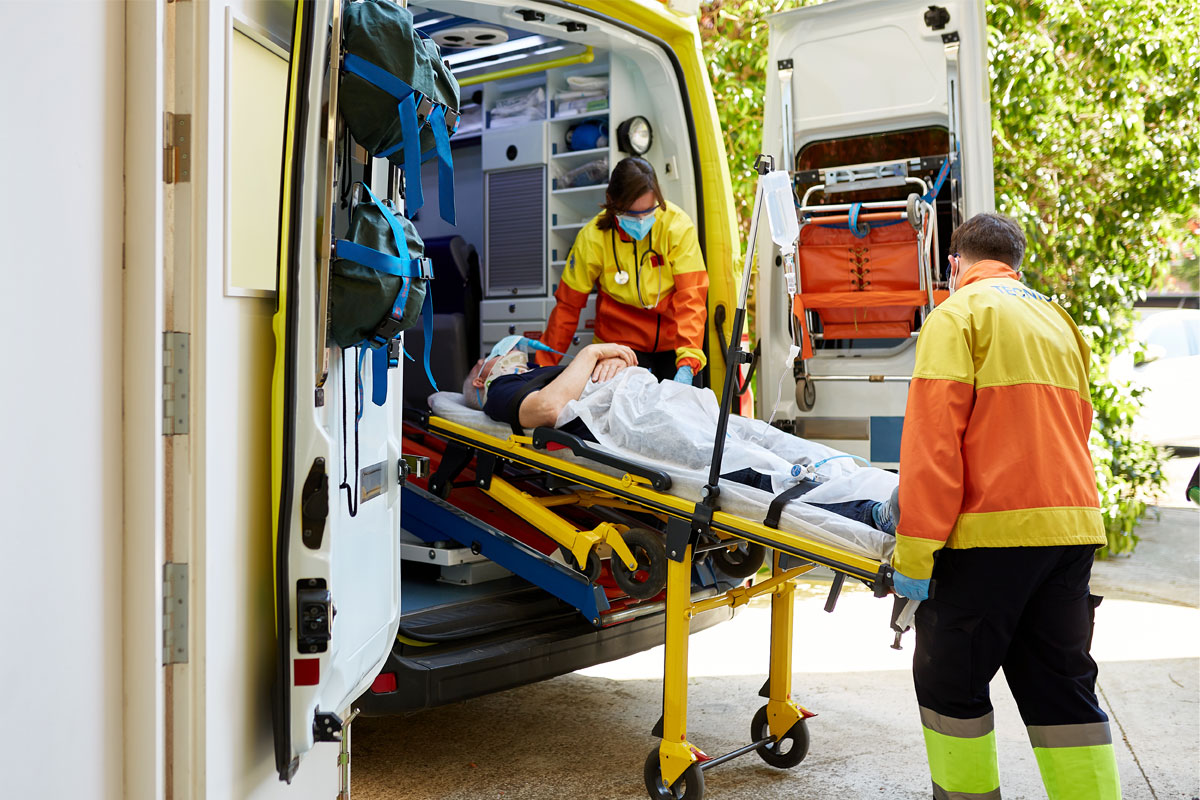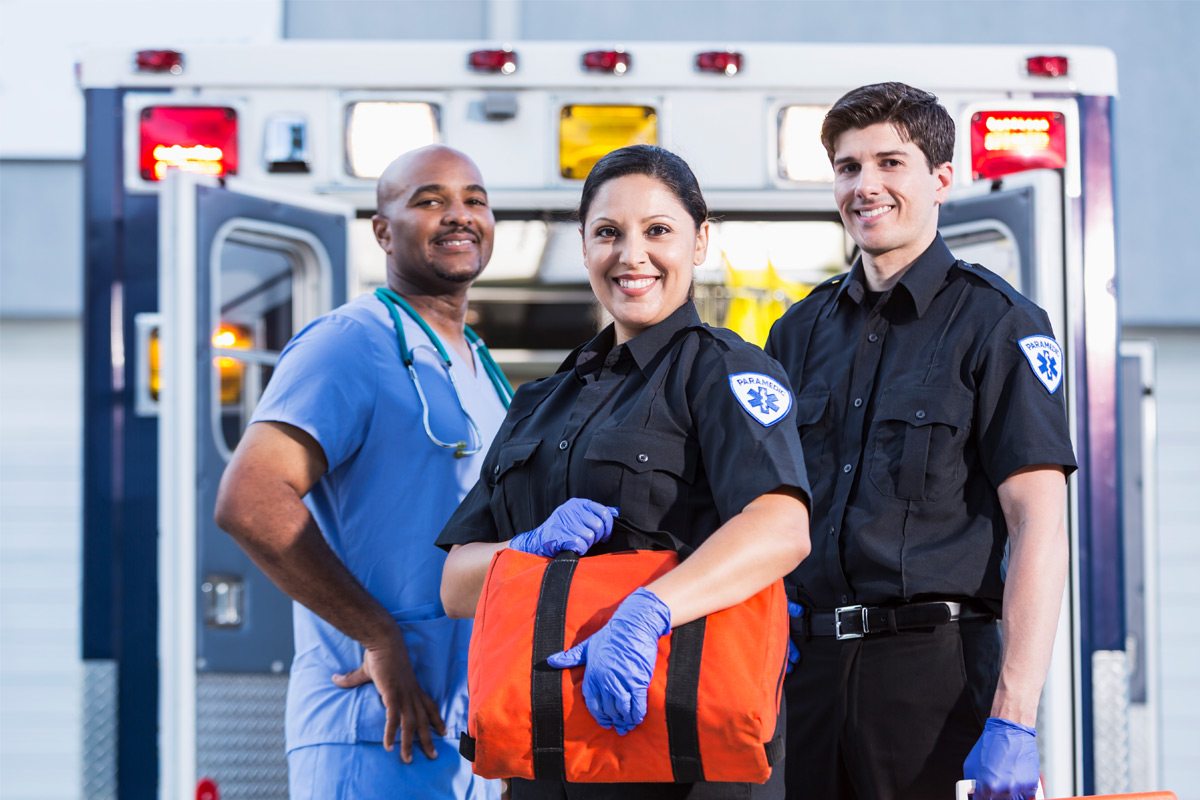Military veterans can be strong candidates to work in emergency medical services after transitioning to civilian careers. Their experience and knowledge can be particularly attractive for hiring managers, especially if they spent time as a combat medic or other similar roles with medical duties.
In this article, we explain why EMS careers for veterans can be a good fit, with a few tips to help you get started.
About Emergency Medical Services
The term “emergency medical services” – or EMS – refers to entire systems of coordinated responses to medical emergencies. EMTs and paramedics are the most common EMS professionals, but other kinds of workers who support EMS include dispatchers, firefighters and more.
In fact, EMS workers and firefighters sometimes work together within the same organization, or they may be one and the same. Fire trucks are frequently the first to arrive on the scene of medical emergencies, and firefighters are sometimes required to obtain EMS certifications.
Why Are Veterans a Natural Fit to Work in EMS?
Here are four reasons why an EMS career can be a good fit for veterans:
1. They Have the Ability to Stay Calm
Many people who have served in the military have a background in navigating disasters and combat, making them ideal candidates for EMS careers. Military veterans are well-equipped to handle emergencies and can remain calm in catastrophic environments due to their comprehensive training and field experience.
EMS professionals need quick reaction times to deal with chaotic and stressful situations. They must also be able to implement a plan of action immediately. The military trains its service members to follow protocols that enable swift and effective responses.
2. They Are Team Players
Military veterans have comprehensive experience working together in teams, often in command and control environments. This familiarity helps them give directions – or follow them – and understand their role within the team’s hierarchy.
Considering their organizational knowledge and decision-making capacity, veterans are prepared to work alongside others to achieve common goals. Utilizing veteran knowledge and experience in working in unity promotes efficiency, one of the most critical aspects of EMS.
3. They Answer the Call to Serve
People who join the military are often motivated by the desire to put others before themselves, and they are committed to serving their country in times of crisis. Many veterans also feel called to public service when they transition out of the military. Working as a first responder allows them to engage with and give back to their community through their new careers.
4. They Are Desired in the Workforce
Veterans are well-equipped to meet the expectations of their employers. The military trains consistently on a scenario-driven basis, highlighting the importance of planning and preparation. Employers who value veterans in the workforce know that if they hire a veteran, they are gaining a disciplined and dependable employee.
EMS Education and Training Requirements
The minimum required education to become an EMT or paramedic is a high school diploma or equivalent, but college degrees can help you advance into administrative positions.
There are differences between EMTs and paramedics, especially when considering their training requirements. EMT training programs typically are between 120 and 150 hours, taking students between six months to two years to complete. Paramedic training programs are more in-depth and can take between 1,200 to 1,800 hours to complete.
EMTs and paramedics are also typically required to earn certifications. States have different requirements, but many expect candidates to have earned the EMT certification through the National Registry of Emergency Medical Technicians. Continuing education and recertification are also critical for any EMS worker.
Although many agencies recognize the value of military experience for EMS professionals, you may have difficulties receiving credit for your military experience when going through EMT training. Your knowledge and experience can help training go more smoothly, but in many states you’ll still need to complete all of the required hours.
Getting Started
EMS careers for veterans can be ideal, as they present them with opportunities to apply their unique skill set while helping the community.
If you’re considering a career in EMS, there are many resources available to get you started. Here at Columbia Southern University, we offer online EMS degree programs at the associate, bachelor’s and master’s degree levels. To learn more, visit our website.
Multiple factors, including prior experience, geography and degree field, affect career outcomes. CSU does not guarantee a job, promotion, salary increase, eligibility for a position, or other career growth.






